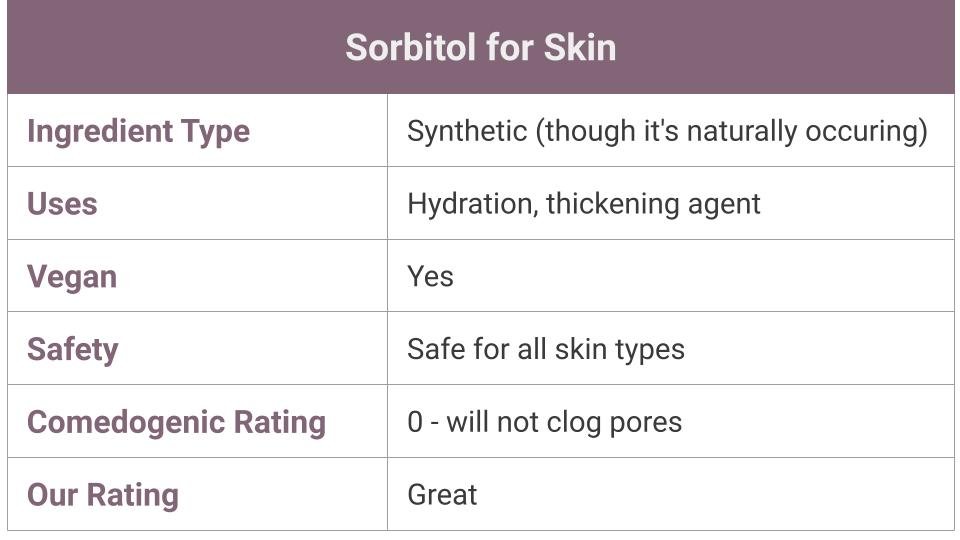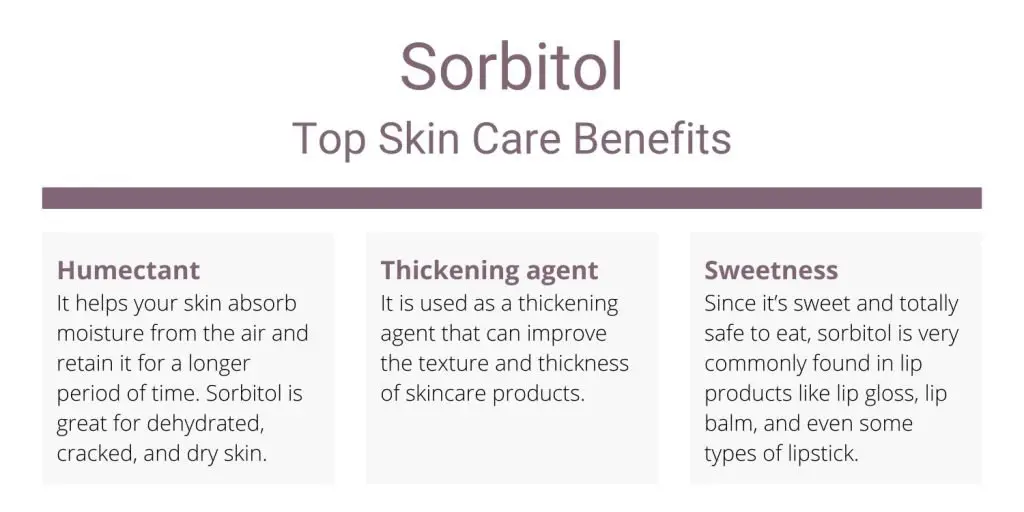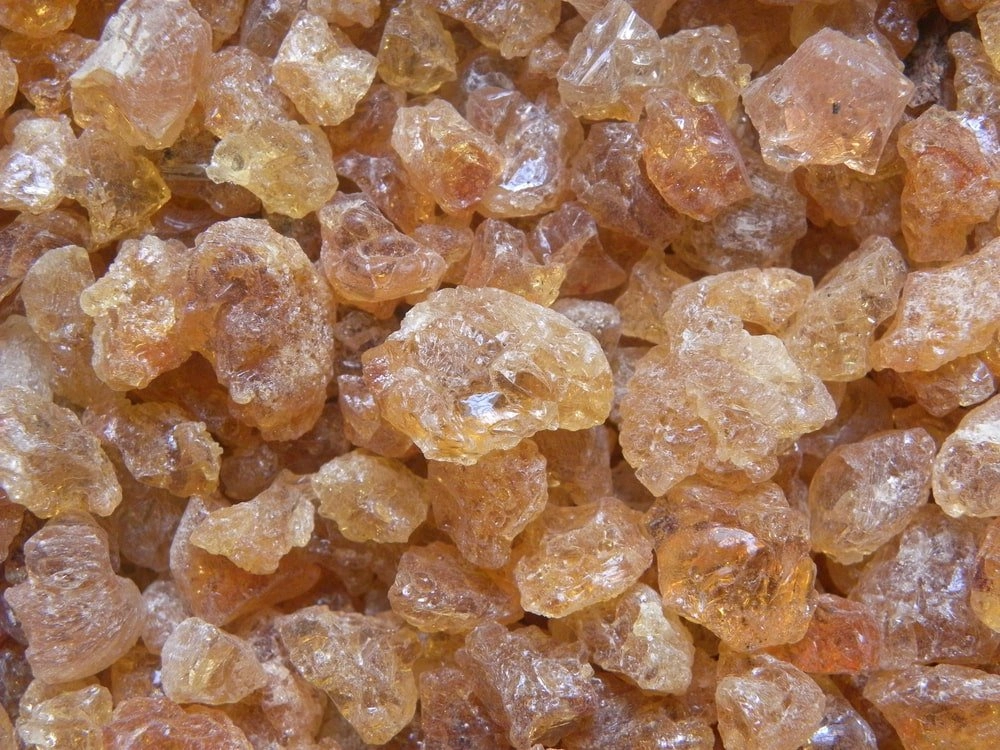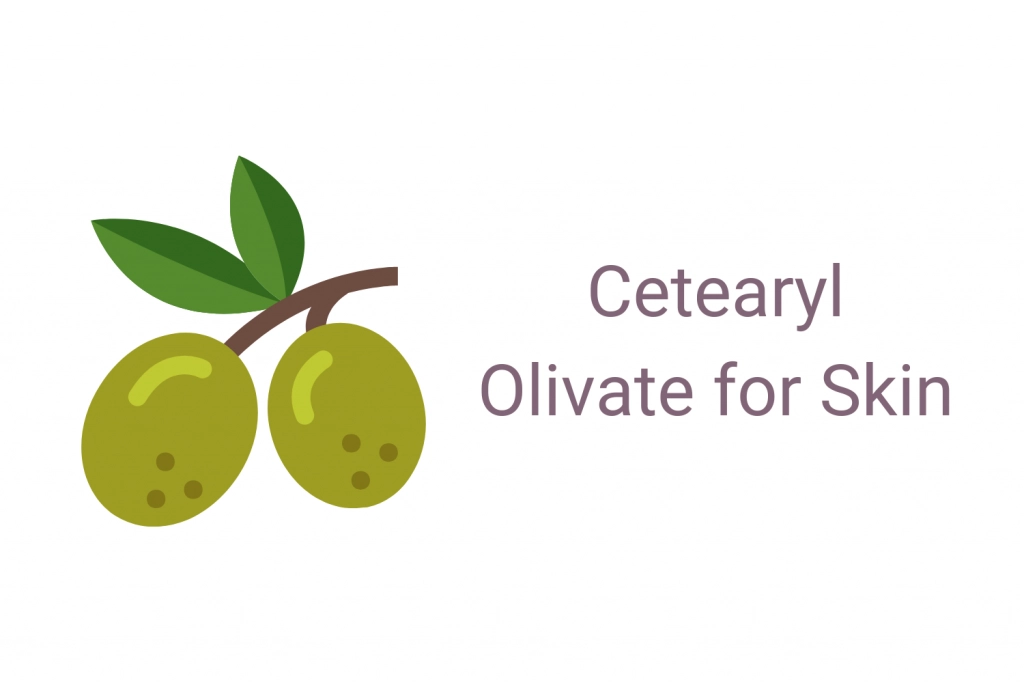Staying informed as a consumer is the best way to make sure you’re picking the best products for your personal skincare routine – and the best way to improve your skincare routine is to understand the role of individual ingredients that are commonly used in skincare products like moisturizers, toners, and cleansers.
This post may contain affiliate links. Read the full disclosure here
Sorbitol is in foods, skin care, personal care items, and cosmetics. It’s natural to wonder what this ingredient does, and why it’s in popular products.
We’ll explore the basics of sorbitol in skin care – including what it is, its uses and benefits, whether or not it’s vegan, and more.
What Is Sorbitol?
Sorbitol is a type of carbohydrate known as a “sugar alcohol,” or “polyol.” It’s frequently used in skin care, but is also commonly used as a sweetener in food products, since it has about ⅓ fewer calories compared to cane sugar.
It’s a naturally-occurring compound that can be found in a wide variety of fruits and berries such as apples and blackberries. It can also be produced artificially from glucose in a laboratory setting. This is the most common type of sorbitol used for both food products and cosmetics.
Sorbitol can be combined with other ingredients for even more effective results. For instance, sorbitan olivate combines sorbitol with the fatty acids from olive to make a hydrating, natural emulsifier.

Sorbitol Skin Benefits?
Wondering why sorbitol is in skincare and cosmetics products? Sorbitol is primarily used in skin care and cosmetics as a thickener, humectant, and for its sweetness (for lip products). It helps the skin absorb and retain moisture, has a sweet taste, and it can help improve the texture of skin care products.
It can thicken products and help the skin absorb moisture. This and it’s stabilizing properties make it a common ingredient in soaps and lotions.
Improve Product Texture
Sorbitol is a “slip agent”. It’s an ingredient that helps other ingredients spread throughout the skin and penetrate it.
It is often used as an additive for this purpose, and also because it’s a thickening agent that can improve the texture of skincare products.
Hydrates Skin
Sorbitol is a humectant, or hydrating ingredient. It has a similar composition to glycerin, another common humectant, and helps the skin absorb moisture from the air and retain it for a longer period of time. This means sorbitol is great for dehydrated, cracked, and dry skin.
Anti-Aging
As the skin ages it becomes less effective at retaining moisture in the skin. This leads to dry skin that is more prone to fine lines and wrinkles. Sorbitol helps the skin retain moisture for a plump, youthful complexion.
Prebiotic Ingredient
Sorbitol helps support a healthy skin microbiome and create beta-glucan, a skin soothing antioxidant. It can feed beneficial bacteria on the skin which helps fight harmful bacteria that causes acne and inflammation. Harsh cleansers, exfoliants, or overwashing can strip the skin of essential bacteria, leaving it more prone to infection.
It’s Sweet
Since it’s sweet and totally safe to eat, sorbitol is very commonly found in lip products like lip gloss, lip balm, and even some types of lipstick. It adds a mild and understated sweetness to these products, making them pleasant to taste on the lips.
Some other skincare ingredients used for thickening formulations include xanthan gum, hydroxyethylcellulose, and acacia senegal gum.

Is Sorbitol Safe In Skincare?
Sorbitol is considered safe in skin care and cosmetics. It occurs naturally in a wide variety of foods that are commonly eaten every day, like apples and blackberries, and is non-toxic when ingested, and on the skin.
There are no known risks associated with using sorbitol in skincare, so you can feel free to use any products containing this ingredient. It’s safe to use even for those with sensitive skin.
The FDA considers sorbitol as a safe food substance. It’s on the list of direct food substances that are Generally Recognized As Safe (GRAS). Also, the Cosmetic Ingredient Review Panel considers sorbitol safe to use in cosmetics based on present practices and uses.
Frequently Asked Questions
Also Known As
Sorbitol is also sometimes called Mannitol or Glucitol. These are the two names that will be used the most commonly on skincare products to refer to this ingredient. However, more rarely, it’s referred to as D-sorbitol, D-glucitol, Sorbo, or Sorbogem.




